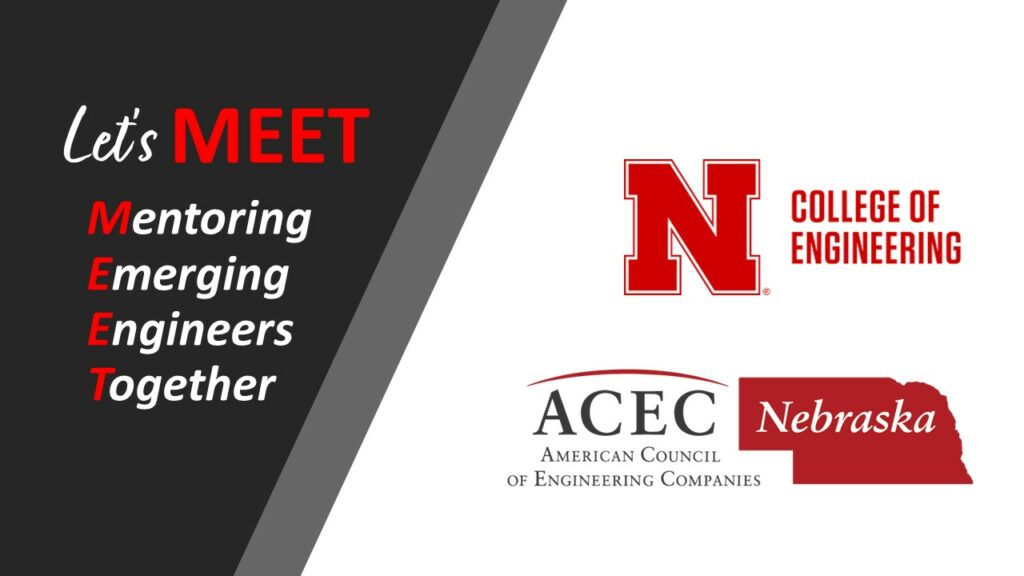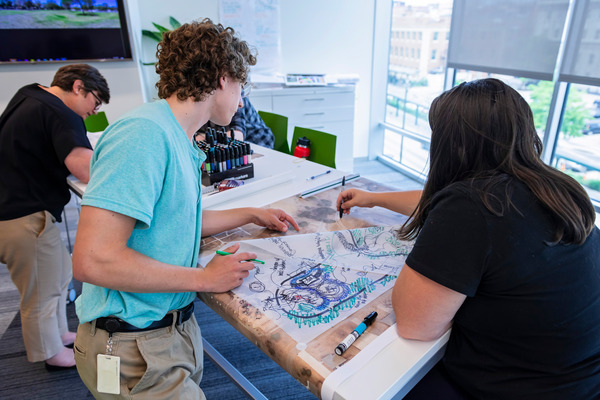
Want to be a mentor or a mentee?
All mentees will receive a gift card at first meeting with their mentor.
Mentoring can help students achieve their educational, professional and personal goals. Serving as a mentor helps students negotiate various professional and personal challenges as well as assist with career success. Being a mentee provides an opportunity to learn about engineering careers and develop a relationship with a working engineer. The ways in which participants influence and learn from one another are immeasurable, and the benefits will have a positive, lasting effect. This program was developed with the mentee at the center. The goal is to connect a mentee with a mentor who will celebrate wins, help with professional development and advise on how to navigate career options. When establishing groups, the MEET program does their best to match mentors and mentees.

Want to be a mentor or a mentee?
All mentees will receive a gift card at first meeting with their mentor.

Photography: © 2023 Olsson
“This program shows how much support there is for Nebraska’s future engineers from the professional community – it’s just unparalleled,” Bartelt-Hunt says. “The mentorship for our students is invaluable, and I hope this program helps us to retain more diverse engineers to help us solve the state’s future engineering challenges.” – Shannon Bartelt-Hunt, Chair of the Department of Civil and Environmental Engineering at UNL, who liaised with ACEC NE and other faculty members to help establish the MEET program.
READ FULL ARTICLEAny undergraduate or graduate student at the University of Nebraska College of Engineering is eligible to participate in the mentorship program as a mentee, and any practicing or recently retired engineer is eligible to participate as a mentor. ACEC NE, the University of Nebraska COE, and an appointed committee of practicing engineers will administer the program.
Mentors and mentees must be willing to commit to the MEET Program for a full academic year. All participants are expected to complete the registration form and provide information including contact information, education, work location, current employer, and interest. This information will be used during the matching process. After a successful match, mentors and mentees are expected to meet two to three times a semester at a minimum, but may meet more frequently if all participants agree. Mentors will have two to three Mentees and will meet in groups (not individually with the Mentee).
Below are some helpful tips and guidelines for mentors. After enrolling as a mentor, participants will be provided with the complete Mentor Guidelines and Code of Conduct document. In the document, full details about Health and Safety, Activities and Program Rules are available.
Frequency: Mentors are expected to meet with Mentees two to three times a semester.
Mentees: Mentors are expected to mentor a group of two (2) to three (3) mentees. Mentoring sessions are group sessions.
Below are some helpful tips and guidelines for mentors. After enrolling as a mentor, participants will be provided with the complete Mentor Guidelines and Code of Conduct document. In the document, full details about Health and Safety, Activities and Program Rules are available. Mentors will be asked to review and sign this agreement prior to participation in the program.
Frequency: Mentees and their groups are expected to meet with Mentors two to three times a semester.
Be open: While the intent of the mentorship program is to help you develop as a professional, it is encouraged for you to share some of the things that make you who you are. Sharing your hobbies and interests with your mentor may help you break the ice and establish some things in common, which will in turn help develop a stronger and more enriching relationship.
Be genuine: One of the great benefits of mentorship is identifying strengths and opportunities. Being honest and transparent during discussion and reflection with your mentor is critical to gaining the most from this process.
Be professional: The mentoring partnership is a great place to start demonstrating professional behavior and learning how professionals interact in the workspace.
Be thoughtful: Your mentor may be able to help you find solutions to some problems you are having. If you approach your mentor for help, first consider the problem you are having and try to come up with a few solutions on your own. Afterwards, reflect with your mentor about the problem-solving process and be mindful of the lessons you can carry forward.
Be collaborative: Take advantage of opportunities to interact with other mentees and mentors. Share what has been successful for you and what hasn’t. Your experience may help others in their mentorships, and likewise their experiences, may help you steer your mentorship experience.
Be responsive: Your mentor is just as busy as you are with work, family, and other engagements. Be respectful by responding to communications in a timely manner and being prepared for each meeting.
“Meeting regularly with two extremely talented freshman students was something I found beneficial for my personal career development as it gave me another opportunity to interact with potential future employees and understand their interests while providing them a glimpse of the real world as an engineering consultant.”
—Doug Holle PE, ACEC NE Board National Director and Principal | Schemmer